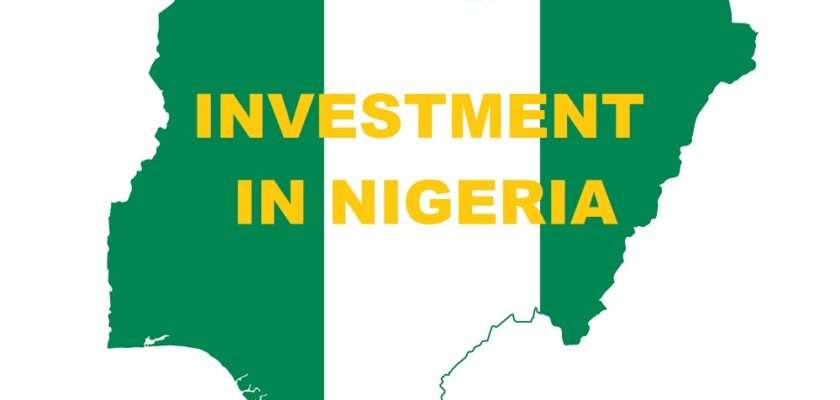Despite any reservation, criticism and pessimism you might have against Nigeria, I am sorry to inform you that there are still viable reasons why you should consider investing in Nigeria at least by 2022.
The art and mastery of investment and business is generally not for the feeble minded or lazy folks. Have you ever stopped to ask yourself why, despite the challenges and narratives against the country, some business men and women have continued to increase their wealth? Why are Chinese, American and some other industrialists from other countries so eager about Nigeria?
In view of the above, the aim of this article is not to highlight the negatives about the country, rather to state reasons why serious minded investors should consider investing in Nigeria. This in no way implies that the country is not faced with several macroeconomic, security and political challenges. However, in the indomitable spirit of Nigeria, the writer aims to suggest ways to mitigate these challenges and factors you should consider.
Without digressing much, it is pertinent to ask this question, why should I consider investing in Nigeria?
1. Population dynamics: Nigeria is the largest country in Africa, the most populous black nation on earth and the seventh most populous country in the world. According to data from the United Nations (UN), Nigeria’s current population is estimated to be around 213,131,110. This is equivalent to 2.64% of the total world population. Also the data showed that the median age in Nigeria is current 18.1 years. This is relevant because in economics, population is synonymous to market, although the issue of whether this is effective or ineffective market is a matter for another write up. Nevertheless, with huge population titled towards youth age category, it is pertinent to state that Nigeria have the active labour force or population that could significantly spur aggregate demand for whatever goods any producer is currently engaged in. If you target just 10% of Nigeria’s population as a producer, that is a whopping 21.3 million people, this automatically makes you a millionaire (revenue wise) . It is the population that has drawn several industrialists to the country, all seeking to leverage on the huge market
2. The launch of AfCFTA: Currently, about 38 countries in Africa have ratified the African Continental Free Trade Area (AfCFTA) agreement and 54 countries have signed it. The start of trading in 2021 resulted in an increase in investor sentiment as dealmakers took note of the agreement’s first movers. AfCFTA is unlocking significant growth opportunities for the continent, providing the chance for countries to diversify their economies, scale production capacity and widen the range of products made in Africa, in particular boosting the production of manufactured goods. Closer integration of neighbouring economies is providing a potential avenue for creating scale and competitiveness through domestic market enlargement, promoting development through greater efficiency. AfCFTA is also acting as an impetus for African governments to address their infrastructure needs as well as to overhaul regulation relating to tariffs, bilateral trade, cross-border initiatives and capital flows.
With Nigeria being the largest African country by GDP and the most populous country, investing in Nigeria avails one the opportunity to tap and maximize the potentials inherent in the treaty.
READ: Factors To Consider When Buying Land for Farming – Yinka Adesola
3. Tax Haven: Nigeria is one of the under taxed countries in the world. According to a report released by Organisation for Co-operation and Economic Development (OECD) in 2020, Nigeria ranked bottom in terms of tax to GDP ratio, with a paltry rate of 6.3%. Data from PWC showed that Nigerians earning less than N300,00 per annum are to pay a paltry sum of just 7%. Compared to some countries in Europe, Asia and North America, Nigeria has one of the lowest tax rates in the world.
4. Increasing funding targeted towards manufacturing and investment: There has been an urgent imperative to identify and enable new sources of finance, outside of traditional lenders and international partners, to address Nigeria’s infrastructure gaps, for example, transportation, energy provision, internet access and data services, and education and healthcare infrastructure in Africa. It is also worthy to note that the Central Bank of Nigeria (CBN) alongside the Federal Government have developed various stimulus packages and grants for emerging businesses. Loan facilities and grants like the COVID-19 intervention Funds, MSME-BOI Intervention loans, etc., are all targeted towards investors and households.
5. Environmental Social and Governance: As Nigeria reduces its over-dependence on natural resources and increases its manufacturing capacity, it must ensure it develops in a sustainable way – spurring investment in projects focused on clean energy, community development initiatives, wildlife protection, sustainable agriculture and low-carbon development, for example. A commitment to Environmental Social & Governance principles is now a primary focus in the quest for post-pandemic funding, with access to capital for large projects almost certainly containing sustainability requirements.
Having identified factors potential investors might consider before investing in Nigeria, it is also imperative to urge monetary and fiscal authorities to help solve some of the macroeconomic, political and social challenges bedevilling the country. For example, the issue of foreign exchange instability and infrastructural deficits have been a militating factor to realizing the nation’s potentials.

